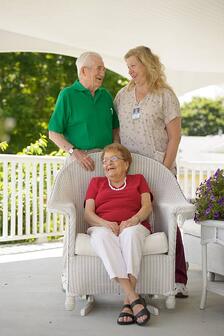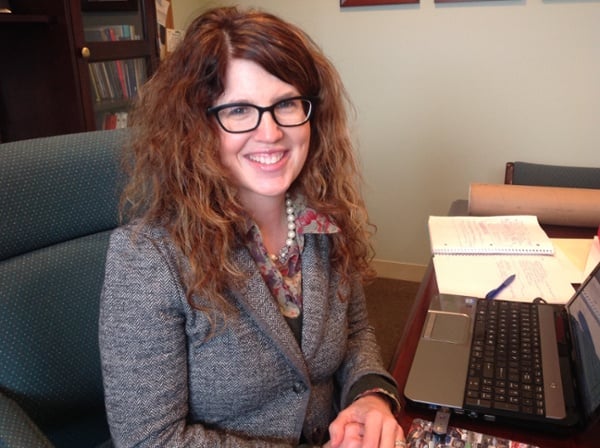 Imagine you walked into your mom’s assisted living community and noticed she bought a new outfit from a catalog. Has your first response ever sounded anything like this: “Stop wasting your money, Mom; haven’t I asked you to stop buying things you don’t need?”
Imagine you walked into your mom’s assisted living community and noticed she bought a new outfit from a catalog. Has your first response ever sounded anything like this: “Stop wasting your money, Mom; haven’t I asked you to stop buying things you don’t need?”
It’s a “tough call” but at some point adult children have to relax and allow their senior parents to make their own decisions. Protecting a vulnerable, aging parent with declining mental health is one thing; encroaching on her free-will, principles and values is another.
Aging Seniors Role Reversal: Why Children Feel the Need to Make the Decisions
Role reversal is a real behavioral phenomenon; it happens in all families at some stage. Children feel the need to make all the decisions for an aging parent even when it’s not warranted. Aside from illness (such as chronic depression, Alzheimer’s, Parkinson’s and stroke), aging seniors are capable of making their own decisions.
Research studies in aging and memory have shown that crystallized memory and reasoning abilities can accumulate over the years and hold up quite well into old age.
When Children Need to “Let Go”
It is good and right to lovingly protect your aging parents from harm’s way. Be responsive and alert to their needs, but LET GO when it comes to these three fundamental, personal “sanctuaries:”
Autonomy. Aging parents have the right to live alone or be part of a community. They have the right to hold on to their self-worth and their principles. Principles of privacy, honoring commemorative events and showing integrity for long-held belief systems should not be attacked by adult children. Most importantly, aging parents need to feel a sense of independence for as long as possible and should have a say in their own well-being.
Personal Relationships. Your widowed dad may have developed a new romantic relationship with a friend in his senior community. You may oppose itfor your own personal reasons, but ultimately, your father’s association with others is his personal affair. While this change can be difficult for any adult child, senior parents are entitled to re-define their roles and relationships as their personal needs change. What may seem like a negative situation to an adult child, can often provide a parent with an engaging relationship that provides comfort, support and most of all, joy.
Spirituality/Religion. If your mom or dad has found a new faith, or has discovered a new fellowship or denomination, be sensitive to their choices and avoid getting involved in that decision. As people age, they often find that their sense of purpose and meaning begin to finally connect and take shape in their lives. If your parent’s decision throws out family “traditions,” try to respond with understanding and support, rather than anger and resentment.
If you have crossed over into these uninvited territories--it’s time to loosen the reigns, step back and-- let your parents make these decisions.
Key Takeaways:
- Protecting a vulnerable, aging parent with declining mental health is one thing; encroaching on his or her free-will, principles and values is another.
- Role reversal is a real behavioral phenomenon; children feel the need to make all the decisions for an aging parent even when it’s not warranted.
- Autonomy - Aging parents have the right to hold onto their self-worth, principles and decisions that affect their own well-being.
- Personal Relationships - Seniors should be able to engage in relationships outside the family that give them comfort, support and most of all, joy.
- Spirituality/Religion - As people age, their purpose and meaning in life start to make more sense and take shape.
More about United Methodist Homes
If you are interested in learning more about our assisted and independent living communities please visit our website www.umh.org and contact us here. We would love to further assist you.






 Imagine you walked into your mom’s
Imagine you walked into your mom’s 